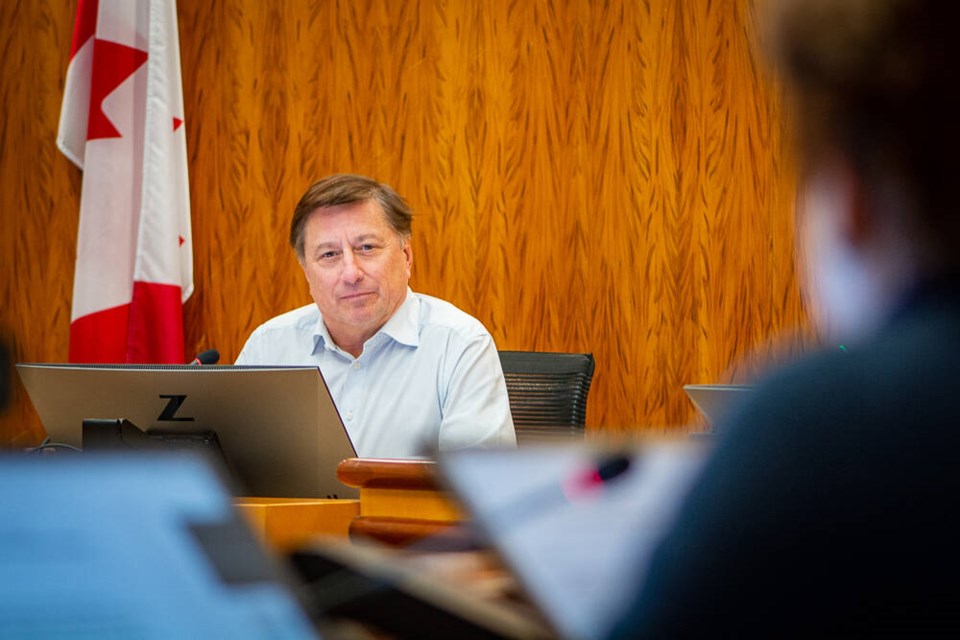District of West Vancouver council has once more voted to reject a code of conduct that would set ethical standards for the way council members are expected to behave.
In a 5-2 vote, the majority of council voted Monday to kibosh the policy which would have set standards for council behaviour. Those opposed said such a code was unnecessary, would result in a flurry of time-consuming complaints and potentially cast a chilling effect on freedom of speech.
In voting to reject the code, crafted over the past year by a committee including three councillors and members of the legal profession, most councillors said they didn’t want to open the door to excessive regulation that could be used to stifle dissenting opinions.
The code of conduct was brought before council as a direct result of a provincial directive that requires local councils to consider it.
Last year, district staff drafted a proposed code addressing such things as harassment, abuse of office, conflict of interest, handling of confidential or personal information, interference with staff or committees and preventing the outside activities of council members from undermining their integrity on council.
But rather than pass it, council struck a committee to look at it. But the policy which resulted from that work encountered similar issues as the last version Monday night.
Pointed opinions about the need for such a policy – or lack thereof – were also aired before councillors cast their votes. Several members of the public – including a lawyer who sat on the committee that developed the policy – urged council to reject the code.
“These things don’t always work out the way they plan to despite the best intentions,” said lawyer Dave Thomas. Thomas said such codes have been used to silence debate and would involve hiring an “integrity commissioner” to investigate complaints. “It’s very expensive,” he said. “A number of municipalities are finding that out now.”
“In my opinion this is a solution being forced on everyone in search of a problem.”
Sandi Leidel told council while she agreed in theory with a code of conduct, the document before council was “over the top.”
Coun. Linda Watt said she was very uncomfortable with an “integrity commissioner” who would be “judge, jury and executioner.”
Kamloops currently has multiple investigations underway based on breaches of the municipality’s code of conduct, she said. “It’s a slippery slope,” she said.
Coun. Sharon Thompson said at the meetings she attended, committee members struggled to define words like “bully” “discomfort” and “unsafe” in the context of harassment policies. “You have to ask yourself what’s reasonable and what’s not,” she said, adding the policy could easily become a trigger “for endless complaints.”
Coun. Peter Lambur and Nora Gambioli, who both sat on the committee which drafted the code, urged their fellow councillors to adopt the policy.
Gambioli said the code of conduct speaks to the district’s need for accountability, protection from liability and leadership. “Those are the things we should be concerned about,” she said.
Gambioli said during work on municipal business not conducted in public, “I have witnessed on numerous occasions colleagues who have acted with disrespect, with harassment, with intimidation towards staff and each other … and who have effectively gotten away with it because there is not a clear mechanism for complaints or enforcement.”
Gambioli added as a councillor she has been required to attend "mandatory training on many occasions … thanks to the intimidating behaviour of my colleagues towards district staff.”
Those comments drew a response from Coun. Christine Cassidy, who said “I don’t know what universe Coun. Gambioli is living in, but her definition of harassment does not meet mine.”
Cassidy said while council members were free to disagree with each other, she had not witnessed the type of incidents described by Gambioli. “I’ve never seen it and I’ve never experienced it,” she said.
Cassidy described the code of conduct as “another layer of bureaucracy that this council and other councils don’t need.”
It was a year ago that council sent the original draft code of conduct out for consideration by the committee.
Since then, it was publicly revealed that Mayor Mark Sager was the subject of a workplace harassment investigation after a complaint was filed by district staff. The results of that investigation were never made public. Sager also had his license to practice law suspended for two years by the Law Society of B.C. after admitting to professional misconduct in his handling of a will. An investigation into “irregularities” in Sager’s reporting of election expense spending is currently still being conducted by Elections B.C.
The previous West Van council vociferously debated and ultimately rejected adopting a similar bylaw in 2021.




